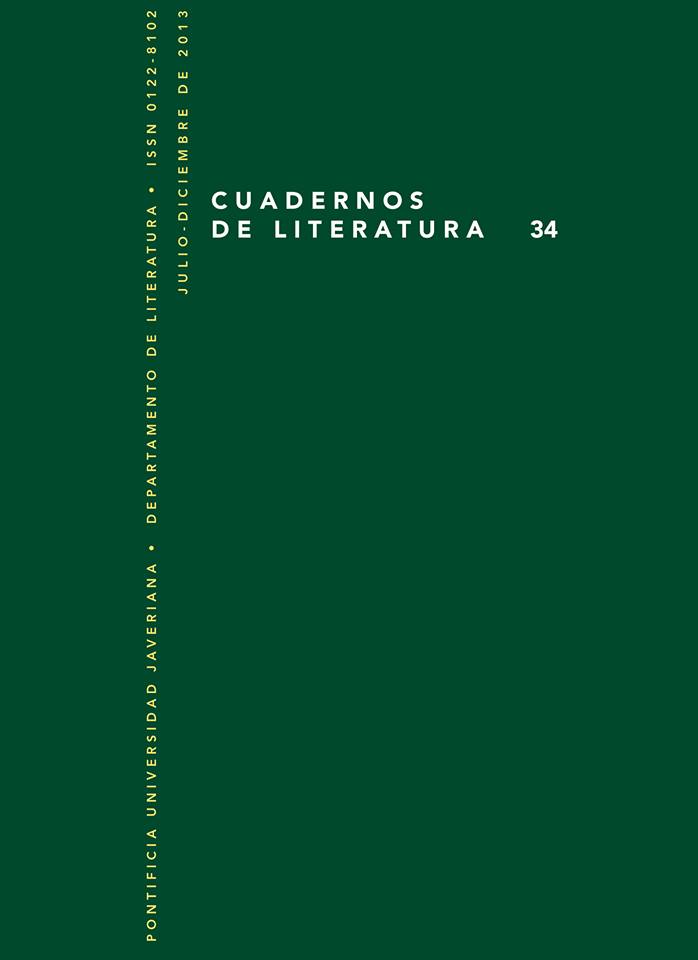Abstract
El artículo examina tres novelas latinoamericanas contemporáneas de tema chino: Una novela china (1987), de César Aira, Los impostores (2002), de Santiago Gamboa, y Un chino en bicicleta (2007), de Ariel Magnus. Mediante un análisis comparativo de sus mecanismos de exotización y orientalización de la cultura china, se ofrecen elementos para entender estas obras dentro de una nueva corriente de imaginación transpacífica que expresa ansiedades propias de las incertidumbres generadas por la globalización cultural. En conversación con la obra de Edward Said y Fredric Jameson, se ofrece una especulación teórica sobre la revalorización cultural a la que llevaría la consolidación de una comunidad literaria transnacional.
Cuadernos de Literatura is registered under a Creative Commons Attribution 4.0 International Public License. Thus, this work may be reproduced, distributed, and publicly shared in digital format, as long as the names of the authors and Pontificia Universidad Javeriana are acknowledged. Others are allowed to quote, adapt, transform, auto-archive, republish, and create based on this material, for any purpose (even commercial ones), provided the authorship is duly acknowledged, a link to the original work is provided, and it is specified if changes have been made. Pontificia Universidad Javeriana does not hold the rights of published works and the authors are solely responsible for the contents of their works; they keep the moral, intellectual, privacy, and publicity rights.
Approving the intervention of the work (review, copy-editing, translation, layout) and the following outreach, are granted through an use license and not through an assignment of rights. This means the journal and Pontificia Universidad Javeriana cannot be held responsible for any ethical malpractice by the authors. As a consequence of the protection granted by the use license, the journal is not required to publish recantations or modify information already published, unless the errata stems from the editorial management process. Publishing contents in this journal does not generate royalties for contributors.


